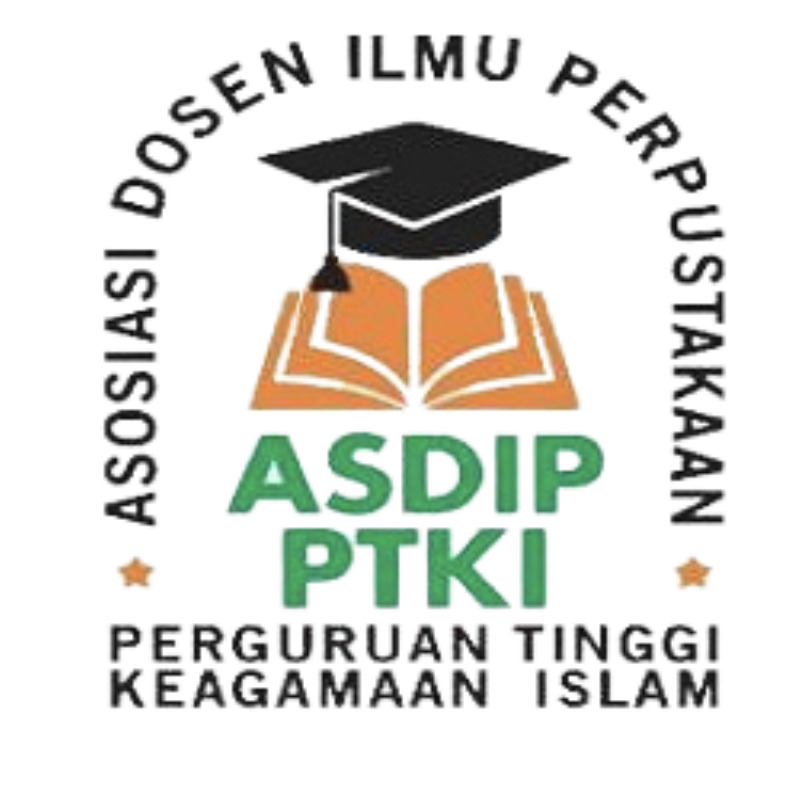Pengelolaan Perpustakaan Masjid Berdasarkan Keputusan Direktur Jendral Bimbingan Masyarakat Islam Nomor 543 Tahun 2019 di Perpustakaan Masjid Al-Markaz Al-Islami Makassar
DOI:
https://doi.org/10.29240/tik.v6i2.5316Keywords:
Management, Mosque Library, Al Markaz Al Islami Mosque MakassarAbstract
This study aims to determine the implementation and the obstacles in implementing the mosque library management guidelines based on the Decree of the Director General of Islamic Community Guidance Number 543 of 2019 at the Al Markaz Al Islami Makassar mosque library. This research is descriptive with a qualitative approach. Data collection techniques were carried out by observation, interviews and documentation. Data processing and analysis techniques were carried out through three stages: data reduction, data presentation and conclusion. The results of the study show that the implementation of the Director General of Islamic Community Guidance Decree Number 543 of 2019 regarding guidelines for managing mosque libraries in the Al Markaz Al Islami Makassar mosque library has mainly been implemented. It's just that there are still guidelines that cannot be implemented, namely the guidelines for library financing, collaboration and promotion. The obstacles to implementing the Decree of the Director General of Islamic Community Guidance Number 543 of 2019 in the management of the Al Markaz Al Islami Makassar mosque library were the lack of human resources, library promotion has not been maximized, lack of budget support from the Foundation, and technological facilities are often disrupted
Downloads
References
Basri, J. (2018). Masjid sebagai Pusat Pendidikan Masyarakat. Jurnal Naratas, 1(1), 22–28.
BIMAS KEMENAG. (2014). Standar Pembinaan Manajemen Masjid (p. 41).
BIMAS KEMENAG. (2019). Pedoman Pengelolaan Perpustakaan Mesjid. Direktur Jendral Bimbingan Masyarakat Islam.
Effendi, M. N. (2020). Reposisi Peranan dan Fungsi Perpustakaan Mesjid dalam Mencerdaskan Umat Islam. 01(01), 1–13.
Fitriani, F. (2017). Peranan Dan Fungsi Perpustakaan Masjid Dalam Mencerdaskan Umat Islam. Pustaka Karya: Jurnal Ilmiah Ilmu Perpustakaan Dan Informasi, 5(10), 52. https://doi.org/10.18592/pk.v5i10.1619
Hariyah. (2015). Perpustakaan Mesjid: Upaya Membangun Kesadaran Inklusif. Baca:Jurnal Dokumentasi Dan Informasi, 36(1), 173–189.
Mufid. (2014). Pengembangan Perpustakaan Masjid: Penyelenggaraan Perpustakaan Masjid Berdasarkan Standardisasi Perpustakaan Nasional RI. Workshop Peningkatan SDM Remas/ Perpustakaan Masjid Se Jawa Timur, 1–9. http://repository.uin-malang.ac.id/468/
Nasrullah. (2022). Strategi dan Tantangan Pustakawan dalam Meningkatkan Pelayanan di Perpustakaan Masjid. Jurnal Pusaka, 10(1).
Rifai, A. (2013). Perpustakaan Islam : Konsep, Sejarah, dan Kontribusinya dalam Membangun Peradaban Islam Masa Klasik. Rajawali Pers.
Rosfiantika, E., & Pawit, M. Y. (2015). Belajar Bersama Para Jamaah di Perpustakaan Mesjid. Jurnal Kajian Informasi Dan Perpustakaan, 3(2),
Triani, R. (2012). Mosque Library and Its Role in Intellectual Life of The Nation. International Conference on Libraries: “Transformation to Humanize Libraries ", 1–7.
Published
Issue
Section
Citation Check
License
Authors who publish with Tik Ilmeu : Jurnal Ilmu Perpustakaan dan Informasi agree to the following terms:
- Authors retain copyright and grant the journal right of first publication with the work simultaneously licensed under a Creative Commons Attribution-NonCommercial-ShareAlike 4.0 International License (CC BY-NC-SA 4.0) that allows others to share the work with an acknowledgment of the work's authorship and initial publication in this journal.
- Authors are able to enter into separate, additional contractual arrangements for the non-exclusive distribution of the journal's published version of the work (e.g., post it to an institutional repository or publish it in a book), with an acknowledgment of its initial publication in this journal.
- Authors are permitted and encouraged to post their work online (e.g., in institutional repositories or on their website) prior to and during the submission process, as it can lead to productive exchanges, as well as earlier and greater citation of published work (See The Effect of Open Access).







 This work is licensed under a
This work is licensed under a 